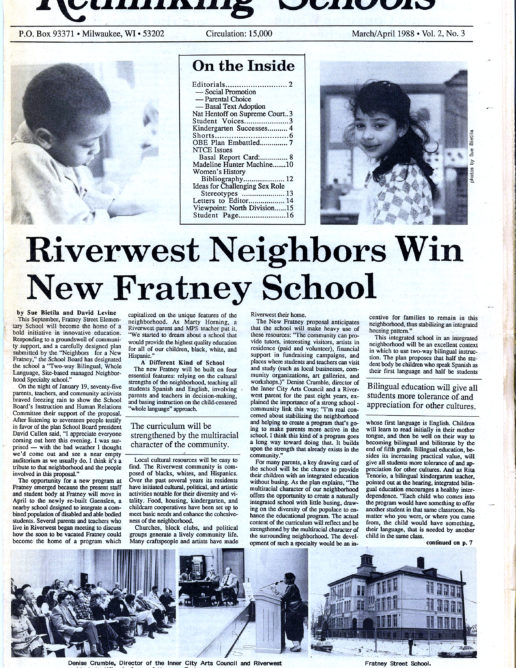A Ruling for Censorship…
William Berkeley, governor of Virginia, thanked God there were no free schools Md no printing in the colonies, for learning has brought disobedience and heresy…into the world.”
In 1943 Justice Robert Jackson, speaking for a majority of the Supreme Court in West Virginia State Board o f Education vs. Barnette, noted with some passion that free schools are essential to keeping the Constitution alive and therefore school boards must scrupulously protect the constitutional freedoms of the individual student “if we are not to strangle the free mind at Its source and teach youth to discount principles or our government as mere platitudes.”
In 1969 Justice Abe Fortas, writing for a majority, promulgated the Magna Carta of students free-speech rights in Tinker vs. Des Moines Independent School District: school officials do not possess absolute authority over their students. Students in school as well as out of school are persons under our Constitution … they may not be confined to the expression of those sentiments that are officially approved.”
On Jan. 13, 1988, Justice Byron White, speaking for the majority of the court, ruled that public school principals can now censor just about any student speech, written or oral, that is not officially approved.
Students still retain some free speech in such places as the Iunchroom or in classrooms where teachers believe that a goal of education is independent thinking.
There is no ambiguity about this drastic removal of First Amendment rights from public school students. In Hazelwood School District v. Kuhlmeir, Justice White states that educators have censoring authority “over school-sponsored publications, theatrical productions, and other expressive activities that students, parents and members of the public might reasonably perceive to bear the imprimatur of the School.”
What are the criteria by which principals will decide to ban? They can suppress anything that is “inconsistent with the school’s basic educational mission.” There can be as many definitions of that vague and woolly phrase as there are principals and boards of education. And each definition can change by the day.
Justice White went on to rule that student speech can also be censored if it associates the school with any position other than neutrality on matters of political controversy.” Students, including those old enough to vote — and there are many in the schools — are now in peril if they write opinion pieces on political issues or candidates. The Soviet Union’s cultural attaches here must be much bemused by this decision.
Justice White was much concerned that no one erroneously regarded students’ speech as carrying the school’s imprimatur when the school wants to disassociate itself from what was said or printed. There are a number of ways. however, to accomplish that end without expelling the First Amendment.
For instance, a disclaimer can be printed in the paper. The Scroll, the newspaper at R. Nelson Snider High School in Fort Wayne, Ind.’ states, in every issue: “Editorials in The Scroll, do NOT represent the opinions of the administration vigorous and free practice of First Amendment rights are guaranteed toThe Scroll and its staff.”
In Dade County (Miami), Fla. for the past seven years, the school board has clearly stated as policy that the student newspapers are not censored. The students operate under a set of guidelines agreed upon by faculty, administrators, students and a professional journalist. While the faculty advisor acts as a guide, all final decisions are made by the student editors. Those school newspapers, by the way, run solid pieces on “safe sex.” drugs and — yes — politics. Justice White notwithstanding, Dade County school officials do not intend to turn those papers back to the principals.
Elsewhere in the country, however, many principals are delighted, even exhilarated, at gaining full control of what’s said or written. In one school, a piece on AIDS was censored within an hour after the Supreme Court decision was announced on the news.
But there is hope for student muckrakers: as the fabled labor organizer Joe Hill said “Don’t mourn, organize.” Nothing in the Supreme Court decision prevents students from starting their own underground or other kind of alternative paper that is in no way sponsored by the school. And by previous Supreme Court rulings, students can distribute such a paper in school — subject to restrictions on time, place and the manner in which it is done (like not in the middle of geometry class).
With that kind of unfettered journalism circulating among students, principals may yet regret that Justice White has turned official school papers into house organs.

